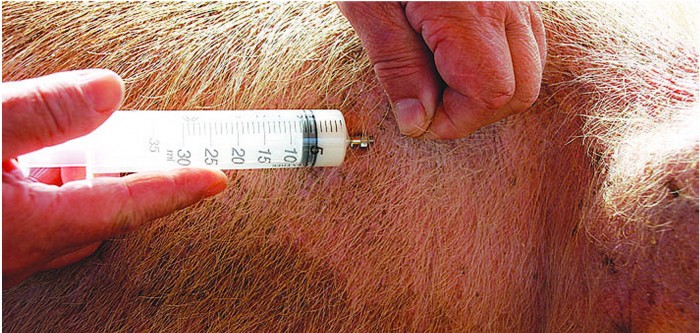The NPA has strongly criticised what it has branded a ‘misleading’ article in the Guardian regarding the pig sector’s antibiotic usage.
The Guardian article initially carried a headline claiming ‘UK pig farms doubled their use of antibiotics vital for humans’, even though it only refers to increased usage of one category of antibiotics.
After the NPA contacted the Guardian, the headline was amended, but the NPA still expressed major concerns with the article, which threatens to undermine the huge efforts the UK pig sector has made to responsibly reduce antibiotic usage over the past five years.
The Guardian article, in partnership with the Bureau of Investigative Journalism, highlights AHDB data showing an increase in usage of one particular category of antibiotics, aminoglycosides, from 2.6mg/kg of body weight in 2015 to 5.9mg /kg in 2019. This class of drugs, which is used on pig farms to combat scour and other illnesses, includes gentamicin, which is used in humans to treat meningitis and infections of the blood and abdomen.
Aminoglycosides are deemed ‘critically important’ by the World Health Organisation (WHO), but is classified by the European Medicines Agency (EMA) as being below the highest priority antibiotics and is advised to be used with caution. The UK follows the EMA categorisation because it is based on science relevant to human and animal health in Europe, the NPA said.
The article quotes veterinary experts suggesting that the increased use of aminoglycosides is probably due to two reasons, the phasing out of antibiotics such as colistin, which is classified as a higher priority for human health, and preparations made by producers for a zinc oxide ban next summer.
Pig Veterinary Society president Paul Thompson said: “While use of colistin to treat post-weaning diarrhoea in pigs across a number of different weaning and rearing systems continues in some parts of Europe, in the UK, affected pigs have instead been treated with zinc oxide or lower priority antibiotics like aminoglycosides.”
Simon Doherty, a past president of the British Veterinary Association, said: “In the short term, we might have to accept that part of the refinement in a move away from zinc oxide or from colistin is that there will be an increase in the use of, for example, aminoglycosides.”
Simon Doherty, a past president of the British Veterinary Association, said: “In the short term, we might have to accept that part of the refinement in a move away from zinc oxide or from colistin is that there will be an increase in the use of, for example, aminoglycosides.”
NPA is quoted highlighting the reduction in the pig sector’s use of the highest priority critically important antibiotics for human health. “We expect usage of different types of antibiotics to vary year on year because vets will prescribe the most appropriate medicine in response to the type of disease which needs to be treated – this is a responsible approach to antibiotic use and the health and welfare of pigs,” the NPA said.
NPA response
NPA senior policy adviser Rebecca Veale said the article’s headline was ‘hugely misleading’ as not only has the UK pig sector reduced overall antibiotic used by 62% since 2015, including a further reduction in 2020, overall use of CIAs has also fallen to levels well below recommended EU limits.
She added that the headline and article leans too heavily on the WHO classification, rather than the EMA classification, which is fully backed by the science.
The NPA is this morning writing to the Guardian to complain over the misleading headline and point out how the article was lacking vital context.
Ms Veale said: “This article is potentially very damaging to the reputation of the UK pig sector, which has made huge strides in reducing antibiotic use in recent years and particularly those seemed critical to human medicine.
“The reality is that use of one antibiotic group that is not classified as critical to human medicine by the EMA and forms a small part of overall UK pig sector antibiotics usage has increased from a very low level.
“That is not remotely surprising, particularly in the context of efforts to remove colistin from the pig sector’s antibiotic armoury and the challenges producers face in adapting to next year’s zinc oxide ban.
“The overall long-term trend for UK pig sector antibiotic use remains downwards and most importantly responsible. To suggest pig producers are ‘doubling their use of antibiotics vital for humans’ is wrong and damaging.
“We would like to expect more responsible and accurate reporting in our national media.”




